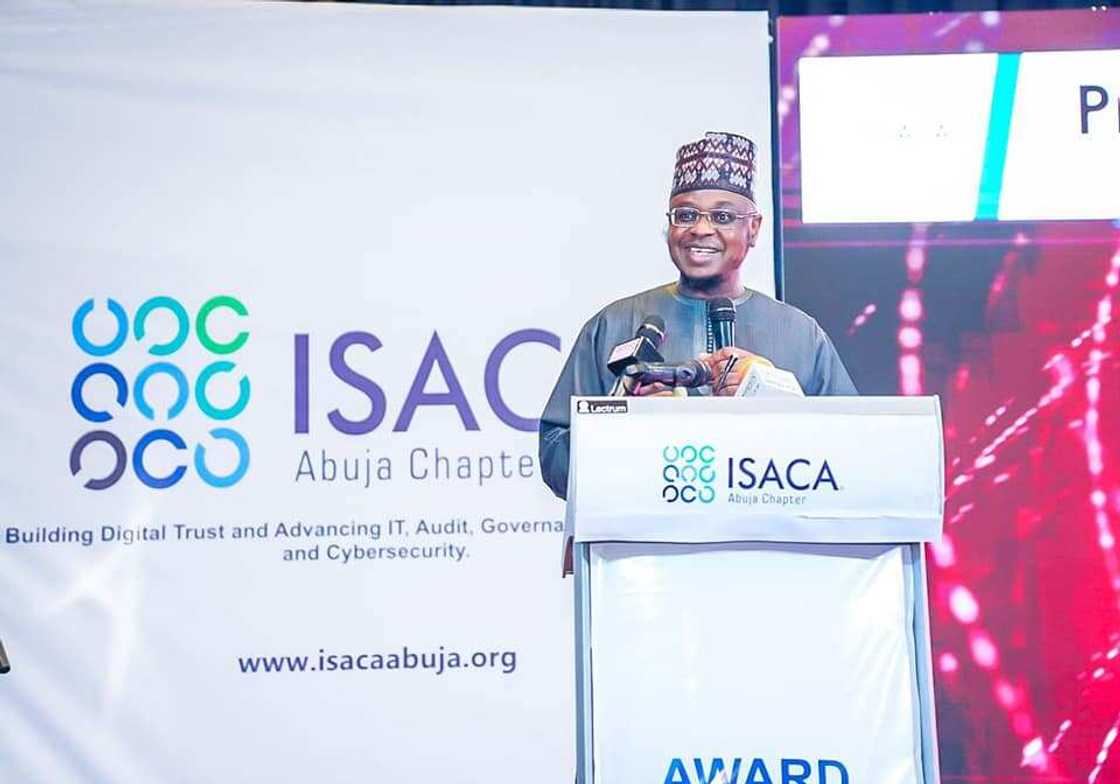Communication Minister Pantami Rejects Tax Increment on Calls, Data
- The minister of communication and digital economy, Isa Pantami, has rejected the federal government's plan to increase tax on calls and data
- If the federal government's planned increment is implemented, the total tax telecom consumers will pay will be 12.5 per cent
- The minister added that the telecom industry has made lots of contributions to the Nigeria economy
Isa Pantami, the minister of communication and digital economy, has rejected the federal government’s 5% increase on exercise duty to telecommunication services.
Legit.ng reports that if the new increment is implemented, the total tax telecom consumers will be paying for the services is 12.5%.

Source: Facebook
The minister made his position known on Monday, August 1, while speaking in Lagos at the exhibition by the Nigerian office for developing the indigenous telecom sector, an agency in the Nigerian Communications Commission (NCC).
Pantami maintained that the telecom sector contributes a lot to the Nigerian economy, stating that more taxes could negatively impact its development.
PAY ATTENTION: Join Legit.ng Telegram channel! Never miss important updates!
He said:
"The phenomenal growth in telecommunications can only continue if policies to enhance the sector locally, in tune with global agenda of self-sufficiency is pursued with vigor and support of the federal, state and local governments."
He then called on the government to consider increasing the taxes on other sectors of the economy that are not contributing to national development.
In his address, the Executive Vice Chairman of NCC, Prof. Umar Danbatta, said the event was made possible under the leadership of the minister.
He said the creation of NODITS to drive the provision of indigenous content for the telecom industry is not only apt but in line with the Nigerian Communications Act 2003.
Danbatta noted that the objective of the policy is to transform the enormous strides achieved by the telecom industry in the last two decades into long-term indigenous economic development outcomes for Nigerian companies and citizenry through capacity strengthening, institutional building and strategic policy tools.
He said this will further promote domestic and economic linkages, job creation and the participation of local Small and Medium Scale Enterprises (SMEs) in the telecom value chain via the supply of goods and services to the sector.
The EVC said:
"Our gathering here today will not only showcase the strides being undertaken by indigenous telecoms companies but will discuss opportunities and pertinent issues relating to the industry from capacity development, funding and financing to policies and its effects on the ease of doing business.
"The phenomenal growth in telecommunications can only continue if policies to enhance the sector locally, in tune with the global agenda of self-sufficiency is pursued with vigor and support of the federal, state and local governments.
He added that the administration has promoted indigenous content in the Oil & Gas, Agriculture, Power sector, Entertainment and Transportation sectors which are backed by special funding and financing regimes.
According to him, the Nigerian indigenous telecoms sector is composed not only of mobile telecoms company but of manufacturers of SIM cards, towers and mast, providers of services such co-location, ISPs, local cloud and Data Center operators, metro and long distance licensees, sales and installers of equipment as well as SMEs and innovators in the sector. All of which are represented here at this EXPO in various capacities.
He added:
"Provision of telecommunications infrastructure and services is capital intensive and telecommunications under the Constitution in classified under the exclusive list, thus the NCA 2003 has explicitly stated that state governments cannot directly be licensed to undertake provision of services.
"However, state governments are at liberty to partner other licensees, registered companies or undertake Public-Private Partnerships to drive telecoms development.
"We shall continue to encourage such initiatives but they must conform to the provisions of the NCA 2003, the license conditions stipulated by the Commission as well as be fair to other licensees and not be detrimental to their conditions of license or be prejudicial to their activities as licensees of the Commission.
Danbatta further stated that the commission through NODITS will therefore pursue not only the technical aspects of indigenous content development but also funding, policy and regulatory issues as well. We are not unaware of the challenges facing small indigenous telecoms service providers.
His words:
"The commission will use its available regulatory instruments including the code of corporate governance that has been put in place, mediation and license conditions not only ensure their survival but to ensure that they return to their glorious past and be able to compete fairly with other international telecoms companies."
FG sets to increase taxes on Phone Calls, Proceeds to Finance Free healthcare for Vulnerable Nigerians
The Nigerian government has announced its decision to increase the taxes on calls and data in order to raise funds to finance free healthcare for vulnerable Nigerians.
The president, Muhammadu Buhari, was reported to have approved the increment before he embarked on a two-day condolence visit to the United Arab Emirate.
In a letter, the government's decision is coming not less than a month that operators in the telecommunication industry demanded an upward review of tariffs on data and phone calls by 40%.
The telecom tax is equal to a minimum of 1 kobo per second for phone calls. The government had said it will be the source of funds to support free healthcare for the less privileged.
Source: Legit.ng


